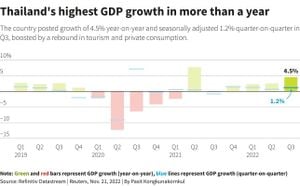The recent German federal elections have reshaped the political contours of the country, marking significant gains for the Christian Democratic Union (CDU) and the far-right Alternative for Germany (AfD), as the incumbent Social Democratic Party (SPD) faced substantial losses. The elections concluded with CDU leader Friedrich Merz positioning himself as the likely successor to Chancellor Olaf Scholz, who now confronts the grim reality of his party’s dwindling support.
According to exit polls reported by ZDF, the CDU claimed the largest share of votes at 28.5%, propelling them forward after years of decline. Meanwhile, the AfD achieved historic gains, capturing approximately 20% of the electorate, highlighting voter disenchantment within Germany and potentially across Europe. The SPD, which led the previous government, landed third with only 16.5% of the votes—a record low—indicating a major setback for the party.
"We have won because the CDU and CSU worked well together and prepared thoroughly for this election," Merz stated during his victory speech, wherein he praised the collaborative efforts with his Bavarian counterpart, Markus Söder, and thanked party supporters for their hard work. Merz's remarks resonate with the CDU’s strategy, which emphasized unity and preparedness, elements the party hopes will continue to serve it well during forthcoming coalition negotiations.
Chancellor Olaf Scholz conceded defeat, acknowledging the results as "bitter" and admitting responsibility for the dismal performance of the SPD. His concession reflects the growing chasm between traditional party politics and the rising populism within Germany, as exemplified by the AfD's strong showing. "The results are clear, they show the dissatisfaction of many voters," he remarked, hinting at the forthcoming challenges the SPD faces to regain public trust and confidence.
The emergence of the AfD as the second-largest party signals a dramatic shift within Germany’s political dynamics. Their rise is not merely local but part of a broader trend observable across many Western nations, as populist and nationalist movements gather momentum. Political analysts have noted increased voter dissatisfaction on various fronts, including economic grievances and immigration concerns, which the AfD has successfully capitalized on.
Germany’s electoral system allows for significant shifts like this, combining direct constituency votes with proportional representation, leading to inevitable coalition negotiations. The upcoming discussions are poised to play a pivotal role in determining not only who will govern but also the policies and direction of Germany’s future, especially its stance on both domestic and international issues.
Smaller parties, especially those hovering close to the 5% parliamentary threshold, may likely wield substantial influence as coalition talks progress. With the CDU-CSU alliance victorious and the AfD enjoying unprecedented electoral success, the contours of Germany’s next government are uncertain. Political analysts highlight the importance of these proceedings, as they may either curb or culminate the growing appeal of far-right politics within the country.
The results from the election suggest more than just political reorganization; they point to shifts within the public's sentiment and broader ideological currents taking root within society. Voter dissatisfaction has become palpable, manifesting as rising support for alternative parties and challenging the traditional two-party system.
Moving forward, coalition negotiations will begin earnestly as parties aim to form stable governance capable of addressing the myriad concerns facing their constituents. According to analysts, how the CDU coordinates with potential coalition partners will be fundamental. Without strategic alliances, the CDU may struggle to govern effectively, and its ability to manage the AfD’s presence will also be tested.
The political pivot within Germany echoes challenges present across Europe, where established parties grapple with rising anti-establishment sentiment reflected through elections and referenda. It remains to be seen how current European Union economic policies will also factor alongside national governance issues.
Given the significant electoral transformation, analysts predict the need for swift coalition formation to tackle pressing issues, particularly those relating to the economy and migration, which were central to the AFD’s campaign. The recovery from this election may not only redefine Germany’s political foreground but could set new precedents of governance amid growing uncertainty within Europe.
Germany's experience, particularly its looming coalition talks, may serve as cautionary tales for others facing similar political disruptiveness. The collective mindset of the electorate may have shifted decisively, yet the eventual political responses will shape Germany's path forward within the EU framework.
This election, undoubtedly, marks not just the rise of the CDU and the AfD but also poses fundamental questions about governance, representation, and policy direction for Germany as it braces for the future.
With coalition talks initiating soon, the outcome may prove pivotal—not just for Germany but for the idea of conventional governance as it has been understood until now, raising questions about stability and the electorate's mandate over their representatives.



